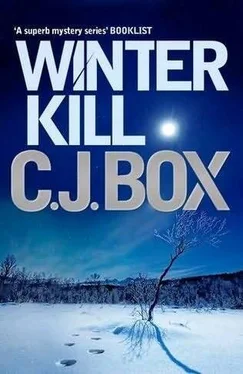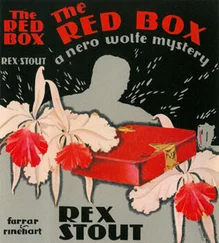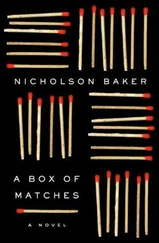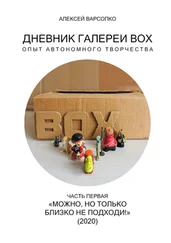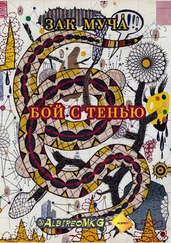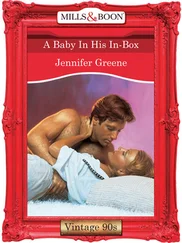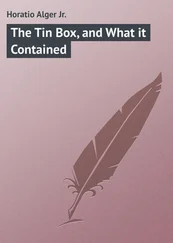Melinda Strickland had wide hips, medium-length copper-colored hair, a long sharp nose, and dark eyes that made Joe think of a raven’s. Wrinkles framed the corners of her mouth like parchment parentheses. She smiled with her mouth only-the eyes remained dark. Her manner of speaking contained lilt and chuckle, as if she were leading up to a punch line that didn’t come.
“I understand there are some folks up here who aren’t real crazy about the Forest Service, or the U.S. government, you know?” she said, as if sharing common knowledge. “And that Lamar Gardiner wasn’t well liked because he strictly interpreted Forest Service policies.”
“I doubt that was the reason,” Joe answered, puzzled.
“I’ve been hammered by calls from people who want to know what’s going on up here,” she said, as if Joe had just agreed with her assessment.
“We need to get going,” Barnum interjected, and for once Joe was grateful for the sheriff’s brusqueness.
In a rumbling, clanking, slow-motion procession, the tracked vehicles ascended on the still-unplowed road. Joe Pickett was in the one in front, sitting next to the driver, with two DCI agents wedged into the backseat. Joe’s snowmobile and trailer-sled were hitched to the back of the Sno-Cat. Breathing diesel fumes and keeping the windows clear of fogging with a towel, Joe pointed out the turnoff from the highway into the forest, which had been transformed by the heavy snowfall. In the second Sno-Cat were the sheriff, his two deputies, and a photographer from the Saddlestring police department. The third vehicle contained Melinda Strickland, the attractive journalist shadowing her, two more DCI agents, and Melinda Strickland’s two dogs.
The sky was sharply blue and the sun’s reflection off the cover of snow was blinding. They passed from sun into shadow and into sun again as they approached the Wolf Mountain bowl. Snow ghosts-pines so packed and coated with snow that they looked like frozen spectral beings-stood sentry as the three battered, spewing vehicles passed below.
“So he grabbed your handcuffs and locked you to the steering wheel, huh?” Bob Brazille asked Joe from the back. Brazille was overdressed in a mammoth down parka, and beads of sweat dotted his forehead.
“Yup,” Joe answered over the engine noise. His voice was flat.
“That son-of-a-bitch, huh?” Brazille said.
“Turn here,” Joe told the driver.
“The Feds are hot about this, judging by the temperament of that Strickland woman,” Brazille continued, shouting over the roar of the engine. “Governor Budd got a call from some Washington mucky-muck. That’s probably why Strickland is here. They don’t like it when a federal employee gets whacked. The governor showed special interest in you, I was told. How does he know you?”
Joe felt a hot, embarrassed flush spread up his neck. “I arrested him a few years ago for fishing without a license.”
Brazille’s eyes widened, and he shook his head from side to side. “So you’re the one, huh? I heard about that.”
Joe nodded and looked away.
After a half-hour of silence, Brazille tapped Joe on his shoulder to get his attention.
“That info-babe with Strickland is a looker, eh?” Joe agreed, although he refused to admit that to Brazille. The journalist with Melinda Strickland was tall and thin and dressed in chic ski-wear: black tights, faux fur-lined boots, and a puffy yellow parka. She had short black hair, green eyes, very white skin, high cheekbones, and bee-stung red lips.
“What did you say her name was?” Joe asked.
“Elle Broxton-Howard,” Brazille said, using a mocking British accent. “She’s actually American, but she’s lived in London for fifteen years or so. Some stuffy Brit magazine has her writing a story on Melinda Strickland.”
“What’s so significant about Melinda Strickland that they’d do a story on her?” Joe asked.
“I asked Elle Broxton-Howard that,” Brazille answered, butchering the accent even worse than before. “She said Melinda Strickland heads up some task force on the increase of violence against federal land managers by local yay-hoos ‘out here in the American outback,’ as she put it. And Melinda’s a woman in a man’s world, so yada-yada-yada.”
Joe turned to ask Brazille what “increase of violence” he was referring to, but the driver downshifted and the racket within the cab was too loud to continue the conversation.
The Sno-Cat nosed over the rim, and the wooded bowl was spread out in front of them. The brilliance of the snow hurt Joe’s eyes. The snow had changed everything; the melded, muted greens, grays, and blues of the meadows and tree-covered folds of before were now portrayed in stark black and white, as if someone had adjusted the contrast of the picture to its most severe. The day had warmed up and the sunshine was lustrous. Pinpricks of reflected light flashed like sequins from the snow in the flats and meadows.
The next thing Joe observed was that something was wrong in the meadow where the elk had been killed. The area should have been undisturbed, but it was criss-crossed with tracks. Tapping him on the shoulder to get his attention, Joe asked the driver to stop, and swung outside the Sno-Cat. Standing on the running board, he raised his binoculars. Behind him, he heard the other two vehicles approach and stop, their motors idling.
It looked like a circus down there. He could see where the snow had been dug up and piled in places, and spots where the snow was discolored.
Joe reentered the cab and closed the door. He turned to Brazille. “When you boys are through with me I need to take my snowmobile down there and look around.”
“What’s the problem?” Brazille said.
“It looks like somebody found those elk,” Joe said.
“Who in their right mind would be up here?” Brazille asked. “Who would give a shit about dead elk in these conditions?”
Joe shook his head. He was wondering the same thing. He turned back toward the front. “Me,” he said, more to himself than to Brazille.
“If we find whoever it was, we’ve got to question them about Lamar Gardiner’s murder,” Brazille said. “Maybe they heard something, or saw something.”
Joe nodded.
“Hell,” Brazille said, raising his eyebrows, “Maybe they were the ones who did it.”
Joe led all of them through the heavy timber toward the tree where he had found Gardiner. The snow was thigh-high, with the consistency of flour. The men grunted and cursed behind him, and Joe felt a thin film of sweat growing between his skin and his first layer of clothing.
“How much farther?” Deputy McLanahan called out, between breaths.
“It’s right up ahead,” Joe answered, gesturing vaguely. It was hard to get his bearings, and he hoped he wouldn’t walk beyond the tree.
“You carried Lamar all this way?” Barnum asked, his voice wheezing. “Jesus!”
“The snow wasn’t as deep,” Joe explained.
“Can we rest for a minute? I need some air,” Melinda Strickland said, supporting herself against a tree trunk while she got her breath.
“Plus I’ve got some important calls to make,” she said as she pulled a cell phone from her coat. She looked at the phone. “Shit, I don’t have a signal up here.”
“Don’t you remember me saying that I couldn’t get a signal from up here?” Joe asked, annoyed that she hadn’t listened during the briefing that morning.
“Let’s take a break before proceeding,” she said, as if Joe hadn’t spoken.
“You’d think she was leading the investigation,” Barnum grumbled, although not loudly enough for Strickland to hear him. But the reporter, Elle Broxton-Howard, caught his remark and shot him a withering look.
Читать дальше
